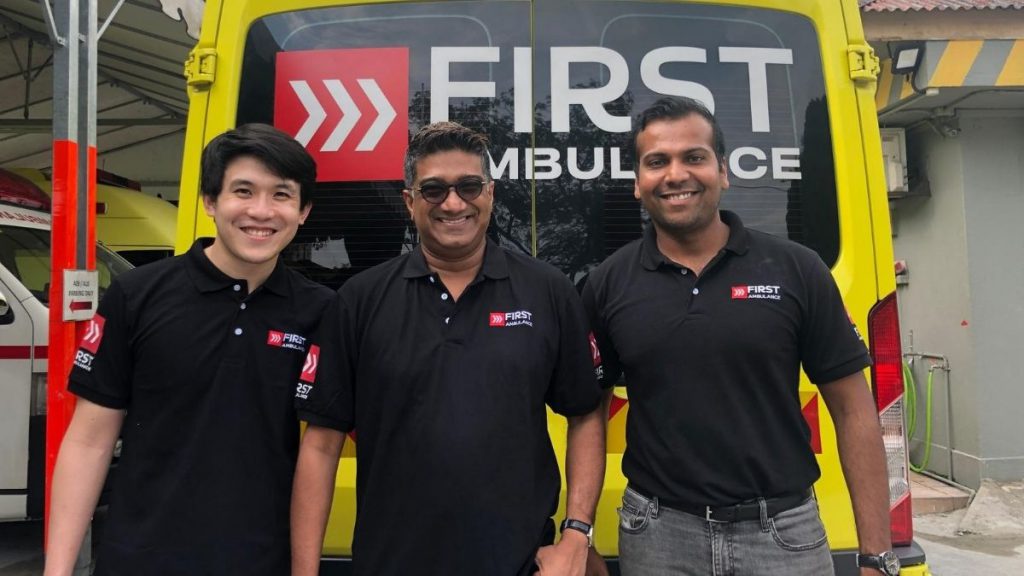Author’s Blurb: When it comes to subscribing to any service, I usually think about how often I’ll use it in the first place. Of course, an ambulance service might be the last thing that comes to mind. How many of us have needed to be transported to the hospital on an ambulance anyway?
First Assistance is a service under First Ambulance, which is a private ambulance provider in Malaysia with over 50 years of experience.
First Assistance saves you from paying expensive one-time fees when you call a private ambulance.
Instead, all you pay for is a membership fee that acts like insurance specifically for emergency response services.
This service has 2 other aims besides that: getting you to your hospital of choice, and doing so in the fastest time possible.
Time Is Of The Essence

The team guarantees that they will arrive at the scene in 15 minutes (although this is only currently applicable to Subang Jaya), and have run some tests to prove that they’re able to deliver the fastest ambulance service in the region.
“We’ve conducted several test loops around the Subang area to ensure that our ambulances are within the 15 minutes response time in a variety of traffic scenarios,” said Nicholas Chia, a lead investor of First Ambulance.
“Prior to the launch, we’ve had more than 50 experimenters help us test out our call centre and dispatching processes, and we were able to hit a 15-minute time on-site under normal conditions,” added Steven Penafort, co-founder of First Ambulance.
But what if you already live close to a hospital and could get someone in your household to drive you there in 5 minutes? Wouldn’t that be better and more efficient?
Nithi Maniam, also one of the company’s investors explained, “With one exception: someone you live with will most likely not be medically trained to move patients which can cause further permanent harm to the patient.”
“In contrast, our team of trained paramedics would be able to administer proper pre-hospitalisation care during the ‘golden hour’ for cases such as stroke which can prevent permanent disabilities,” he added.

All of First Assistance’s paramedics are Advanced Cardiac Life Support (ACLS) trained, which means that they can perform a set of clinical algorithms for the urgent treatment of cardiac arrest, stroke, heart attacks, and other life-threatening cardiovascular emergencies.
This is reflected in First Ambulance’s (and thus First Assistance’s) track record too.
“Our success rate in getting people immediate care has been close to perfect in the past 20 years,” Nithi shared.
Of course, this is barring the non-success cases due to patient non-compliance such as when people take matters into their own hands out of impatience when waiting for the ambulance, flooding, and other external factors beyond their control.
Giving Patients A Choice

As First Assistance has access to their parent company’s fleet of private ambulances, they are able to get patients to their hospitals of choice, which isn’t the practice for public ambulances.
“The standard operating procedures of public ambulances are not to take you to the nearest hospital, it’s to take you to the nearest government hospital,” said Nicholas.
“Sometimes we want a choice and our membership allows you to choose your hospital in order of preference,” he added.
The First Assistance teams are also trained to check with emergency rooms of your chosen hospital in advance for availability.
If no emergency rooms are available, they’ll move on to the second most preferred choice, so if you live 5 minutes away you’re naturally safer than most who don’t.
The team also pointed out that the elderly would be at higher risk with regards to healthcare, and thus would require First Assistance’s membership more urgently.

“We are very cognizant of that and we aim to support patients with pre-existing conditions so we know exactly where to take them and which hospital they get treatments from,” said Steven.
This is important because patients with pre-existing conditions are usually tied to one hospital under a primary doctor, like an oncologist, who holds the file to all their medical records.
However, in life-or-death emergencies where choice isn’t an option to save lives, Steven told us that their objective switches to responding first, meaning sending a patient to the nearest hospital to get treatment.
Apart from the elderly, First Asistance’s membership would also benefit middle class urban residents who want a choice.
They would be those aged 30-55 who want a supplementary first response option to the MERS-999 service, especially if they prefer treatment in a private facility.
According to the team, subscribing to a First Assitance membership may also be more cost-saving in the long run, as the breakdown below shows.
Down To The Maths
| Ambulance Usage Types | SOP | Cost |
| Free public ambulances | – Brings you to government hospital – You cannot opt to go to a private hospital | – Practically RM0 |
| Private hospital ambulance | – Price of ambulance service is billed to your final hospital bill | – Patients generally pay RM800-1,000 per year (your medical insurance might cover this) |
| First Assistance paid membership | – Access to the First Assistance 24/7 hotline and ambulance services, free of charge | – RM15/month for individuals (RM180/year) – RM60/month for a family of 5 (RM720/year) |
| First Assistance free membership | – Access to the First Assistance 24/7 hotline, free of charge | – Ambulance service will still be pay-per-use, similar to a private hospital ambulance service (your medical insurance might cover this) |
Based on the table above, you would benefit the most from First Assistance’s paid membership if you didn’t already have medical insurance.
Or maybe you do, but you still want the assurance of getting an ambulance within 15 minutes (which general private hospital ambulances might not necessarily be able to achieve).

So far, the team has been able to cover many emergency response missions, run events for major corporations like Iron Man competitions as well as work for over 55 private hospitals in Malaysia.
“To top it all off, we also have the largest fleet of any private ambulance company in Malaysia,” Jeremy added.
First Ambulance has a fleet of 39 advanced life support ambulances operating in the Klang Valley, Terengganu, Johor, and Kota Kinabalu, that First Assistance can utilise.
Editor’s Update: Information in the above paragraph has been edited to reflect greater accuracy.
In the short term, the team hopes to be able to raise awareness and obtain 10,000 members in 2020 within the Klang Valley.
Long-term, they aim to cover all urban areas in Malaysia. To achieve that, they urge people staying outside of Subang Jaya to sign up as for First Assistance as well.
This is so that they can collect enough user data to help them determine the best locations to station their ambulances and for scaling their fleet.
Bottom Line: Getting insurance is the kind of thing you wouldn’t really care about until something terrible happens to you or someone you love. Personally, I think basic coverage is already good enough. It’s always a good idea to be prepared in emergencies, even if you think you don’t need it now when you’re healthy and capable.
- You can register your interest in First Assistance here.
- You can read more about other Malaysian startups here.
Feature Image Credit: First Assistance













